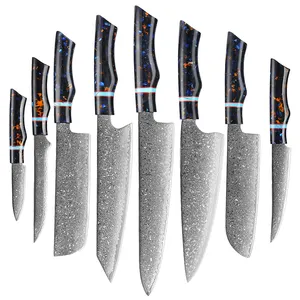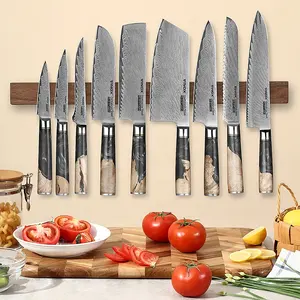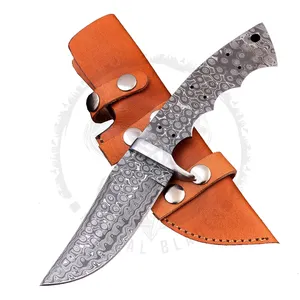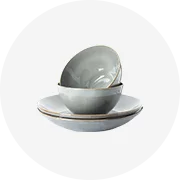Damascus knife blanks refer to the unfinished, pre-shaped pieces of Damascus steel that serve as the foundation for creating Damascus knives. Damascus steel is a type of steel known for its distinctive patterns and excellent strength and sharpness. The patterns are created by folding and layering different types of steel together. The process involves forge-welding multiple layers, creating a visually appealing pattern on the surface of the steel.
Uses of Damascus Knife Blanks
Knife enthusiasts and bladesmiths use Damascus blade as a starting point to create custom knives. The unique patterns on Damascus steel make finished knives visually appealing and distinctive. Also, some people use Damascus knife blanks as art pieces or collectibles. Damascus Steel's intricate patterns and craftsmanship make these blanks attractive for display. Individuals who enjoy crafting and DIY projects can use Damascus knife blanks to create their knives. This allows for a personalized touch regarding handles, finishes, and other design elements.
Damascus steel can be used for educational purposes, especially in bladesmith workshops and classes. They provide a practical and hands-on experience for learning the art of knife making. At times, bladesmiths and artisans can purchase Damascus knife blanks in bulk and use them as a base for creating knives for resale. This can be the foundation for a small business in knife-making. Further, Damascus blanks provide a canvas for creative designs and custom patterns. Bladesmiths can experiment with different layering techniques and combinations of metals to achieve unique visual effects. Buyers should also purchase Damascus knife blanks for various tasks to cater to numerous customers' requirements.
Buying Suggestions for Damascus Knife Blanks
When buying Damascus knife blanks wholesale, buyers should check the type of steel used in the Damascus blend. Common types include high-carbon steel, VG-10, or even more exotic alloys. The combination of different steels contributes to the distinctive patterns in Damascus steel. Also, buyers should consider the visual appeal of the Damascus pattern. Other techniques, such as twist, ladder, or raindrop patterns, can be used. They should choose patterns that appeal to various aesthetic preferences.
When purchasing Damascus knife blanks for sale, buyers should consider the tang type (the extension of the blade into the handle). A full tang, where the blade extends the handle's length, is generally considered more robust and durable. More importantly, they should consider the thickness of the blank, as it will influence the weight and balance of the finished knife. Thicker blanks may be suitable for heavy-duty tasks, while thinner blanks are often preferred for precision cutting. Finally, buyers should purchase from reputable and well-known Damascus knife blank suppliers. This ensures they will get genuine Damascus knives empty with quality craftsmanship.



































 浙公网安备 33010002000092号
浙公网安备 33010002000092号 浙B2-20120091-4
浙B2-20120091-4